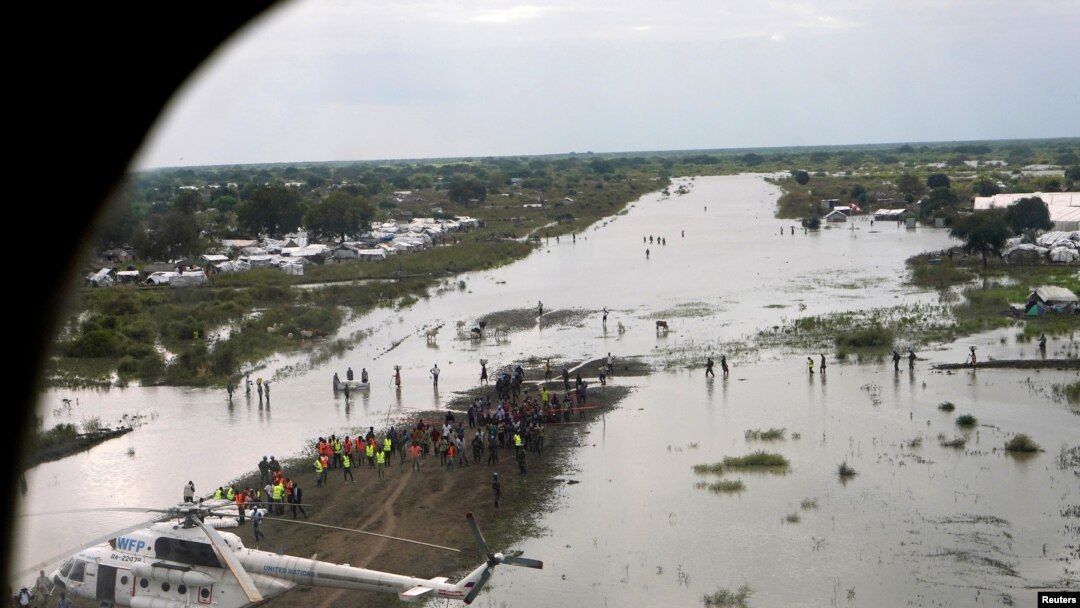The head of the U.N. World Food Program has warned that more than 4 million South Sudanese may slide into famine in the next six months unless the WFP receives funding to pre-position food aid.
WFP Executive Director David Beasley visited South Sudan this past week in the wake of floods that have destroyed crops, livestock and the livelihoods of hundreds of thousands of South Sudanese. He pleaded with donors to help the nation's people.
"Please, we cannot turn our back on the innocent families and children out there,” Beasley told VOA's South Sudan in Focus. “Failure to raise the money we need within the crisis period could mean loss of lives, it could mean famine conditions, but let's hope we get the response we need to avert famine."
Aid agencies say nearly 1 million people need assistance after floodwaters destroyed their animals, produce and much of their property.
Beasley warned that if the crisis was not addressed quickly, it could be a source of conflict within South Sudanese communities and cause a wave of immigration to other countries.
4.5 million in jeopardy
Matthew Hollingworth, the WFP country director in South Sudan, said 4.5 million people faced acute and emergency levels of food insecurity.
He said when people reach that point, they can slide into catastrophic food insecurity, which means a state of famine, which can quickly lead to many deaths.
Hollingworth said South Sudan was already at the worst level of malnutrition.
"We are already, from a nutrition perspective, above the emergency threshold for malnutrition in the world today, with 16 percent malnutrition in young children,” he told South Sudan in Focus. “Fifteen percent is the global emergency threshold. When you are above that, you have already crossed a red line.”
Hollingworth said WFP might be forced to scale down its operations if it does not secure the required funding in time.
In one severe local case, officials and residents in South Sudan's Boma state said more than 10,000 households in Jebel Boma County were facing severe hunger.
'Really suffering'
Resident Mary Medina said the hunger crisis started five months ago when floods hit the area. She said locals were surviving on wild vegetables collected from the bush, after heavy rains washed away all roads that enabled traders to import goods from neighboring states.
"We are really suffering here in our state,” Medina said. “We don't have access to roads, and also there is no network to connect us to other states. So we are just isolated here. Another problem is our markets are closed because there is nothing to be sold to the people for survival."
Jebel Boma County resident Martha Kuram said children in particular were suffering.
"Our children are really starving,” she said. “We are just managing on a local vegetable called malkiring. We cook it for the children to eat every day. For those who would like to help, they should hurry up and rescue us, because if they don't, then I think people are going to perish in the near future."
Jebel Boma County Commissioner Aliston Waskin said severe hunger in Boma state was widespread. Waskin said he had pleaded with national officials and humanitarian agencies to intervene, but that no single agency had responded.
Waskin said many people were at risk of dying.
"All these 58,000 are suffering. In fact, some of the people went to Ethiopia … and some of them came back,” Waskin said. “So those who are now present in Jebel Boma County in various places are facing this hunger."


